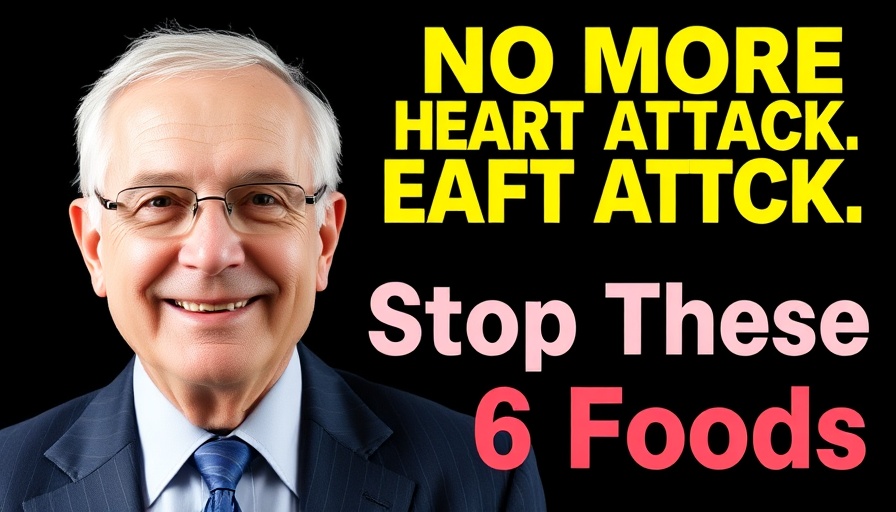
The Heartfelt Transformation of a President
In the realm of health and wellness, few stories are as compelling as that of former President Bill Clinton. After undergoing a serious heart surgery at age 58, Clinton faced a decision that would change his life—adopting a plant-based diet recommended by Dr. Caldwell Esselstyn. This choice not only revitalized his health but also offered him a second chance at life. Now at 78, Clinton embodies the profound impact that nutrition can have on heart health.
In 'NO MORE HEART ATTACK! How Bill Clinton Healed his Heart and Artery with Dr. Esselstyn's Diet', the discussion sheds light on the importance of dietary choices in heart health, prompting a deeper exploration of how these insights can transform lives.
Understanding the Basics: What is a Plant-Based Diet?
A plant-based diet, as advocated by Dr. Esselstyn, primarily consists of whole foods such as fruits, vegetables, legumes, and grains while minimizing or eliminating animal products. Clinton's approach exemplifies this philosophy, focusing on nutrient-dense foods that nourish the body without overwhelming it with processed ingredients. With a daily routine that features beans, legumes, and protein-rich smoothies devoid of dairy and meat, Clinton showcases how lifestyle changes can lead to remarkable health transformations.
The Majors Players: Top Foods to Avoid for Optimal Heart Health
Dr. Esselstyn emphasizes six critical foods to eliminate to protect and heal endothelial cells, which line our blood vessels. Remarkably, these insights have implications not only for those who have suffered heart issues but for anyone looking to enhance their overall health:
- Oils: All oils, including olive oil, are detrimental to the endothelial function by promoting stickiness in the bloodstream.
- Caffeine: Consuming caffeinated coffee can impede nitric oxide production—essential for healthy blood flow.
- Meat: Any food derived from animal sources, especially red meat, is linked to numerous health risks, including increased heart disease.
- Dairy: Dairy products like milk and cheese can be inflammatory and contribute to cardiovascular stress.
- Sugar: High-sugar foods can contribute to endothelial dysfunction, so moderation is key.
- Alcohol: Even moderate consumption can impair endothelial health, making it essential to rethink drinking habits.
Revisiting Dietary Choices for Lasting Impact
The reality is that everything we choose to eat has consequences. With major studies indicating how dietary patterns impact heart health, it's vital to rethink our food choices. A staggering number of Americans consume diets rich in processed foods, leading to systemic health issues. Engaging with these insights can empower individuals to make healthier choices that resonate with their values and health goals.
Why It Matters: Real-World Applications
The message from Clinton's journey and Dr. Esselstyn's guidance is clear: nutrition is a powerful tool for prevention and healing. Individuals, especially those aged 45 and above, can benefit immensely from acknowledging the link between diet and heart health. Social outreach for awareness around plant-based diets could pave the way for healthier communities and an enlightened population.
Take Action: Embrace a Healthier Lifestyle
Health enthusiasts should consider taking the first step toward a balanced lifestyle by experimenting with plant-based meals. For those wary of making drastic changes overnight, begin by incorporating more fruits and vegetables into your meals, or try a new recipe each week that prioritizes whole foods. Remember, every small step counts!
Conclusion: The Power of Choice
Bill Clinton's journey underscores a pivotal truth about our health: with informed choices, we have the power to rejuvenate our bodies and transform our lives. By following the pathway suggested by health professionals, you too can unlock the vitality that comes from mindful eating. Choose wisely, live well, and embrace your journey toward healthier living.
 Add Row
Add Row  Add
Add 


Write A Comment